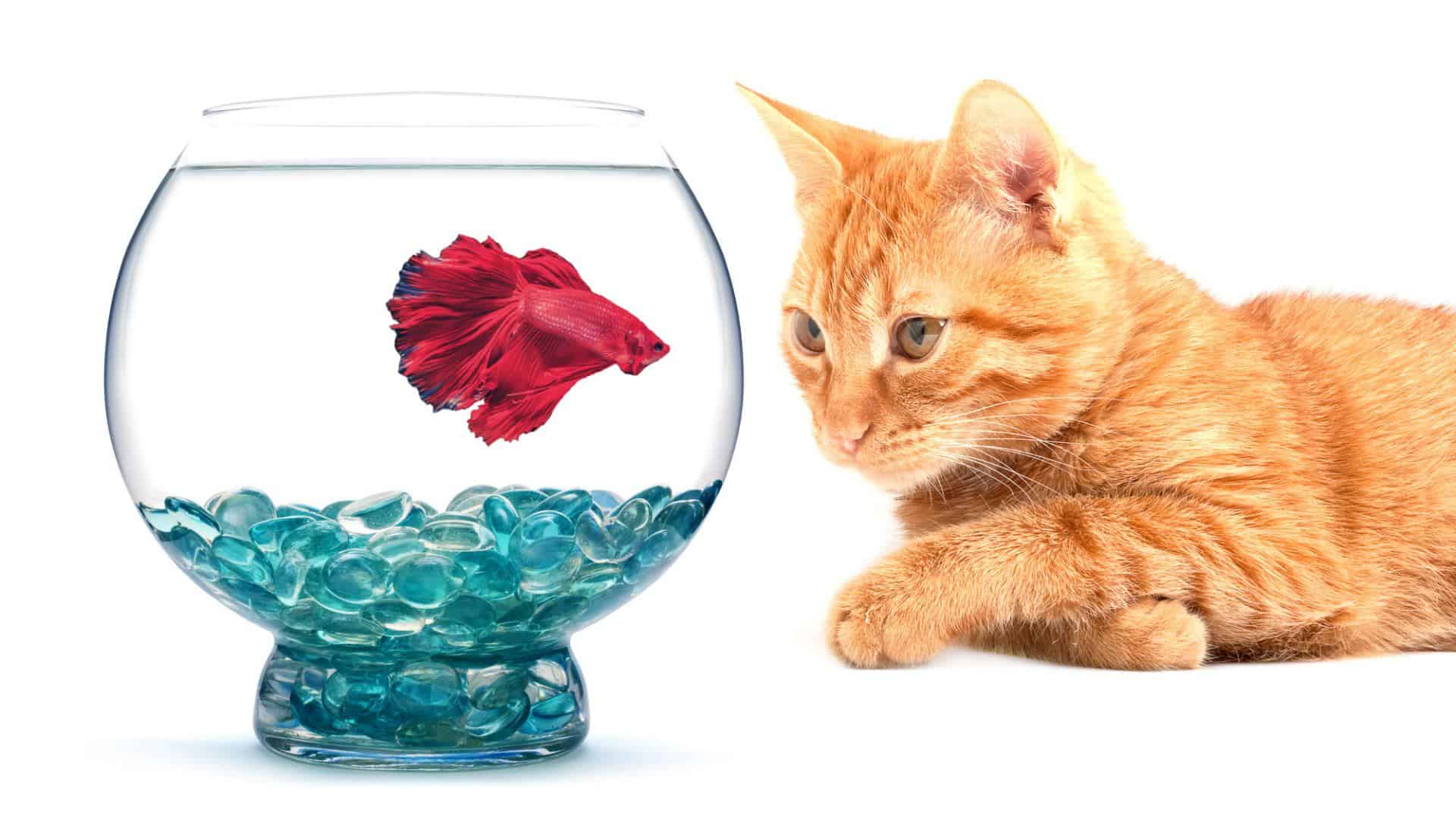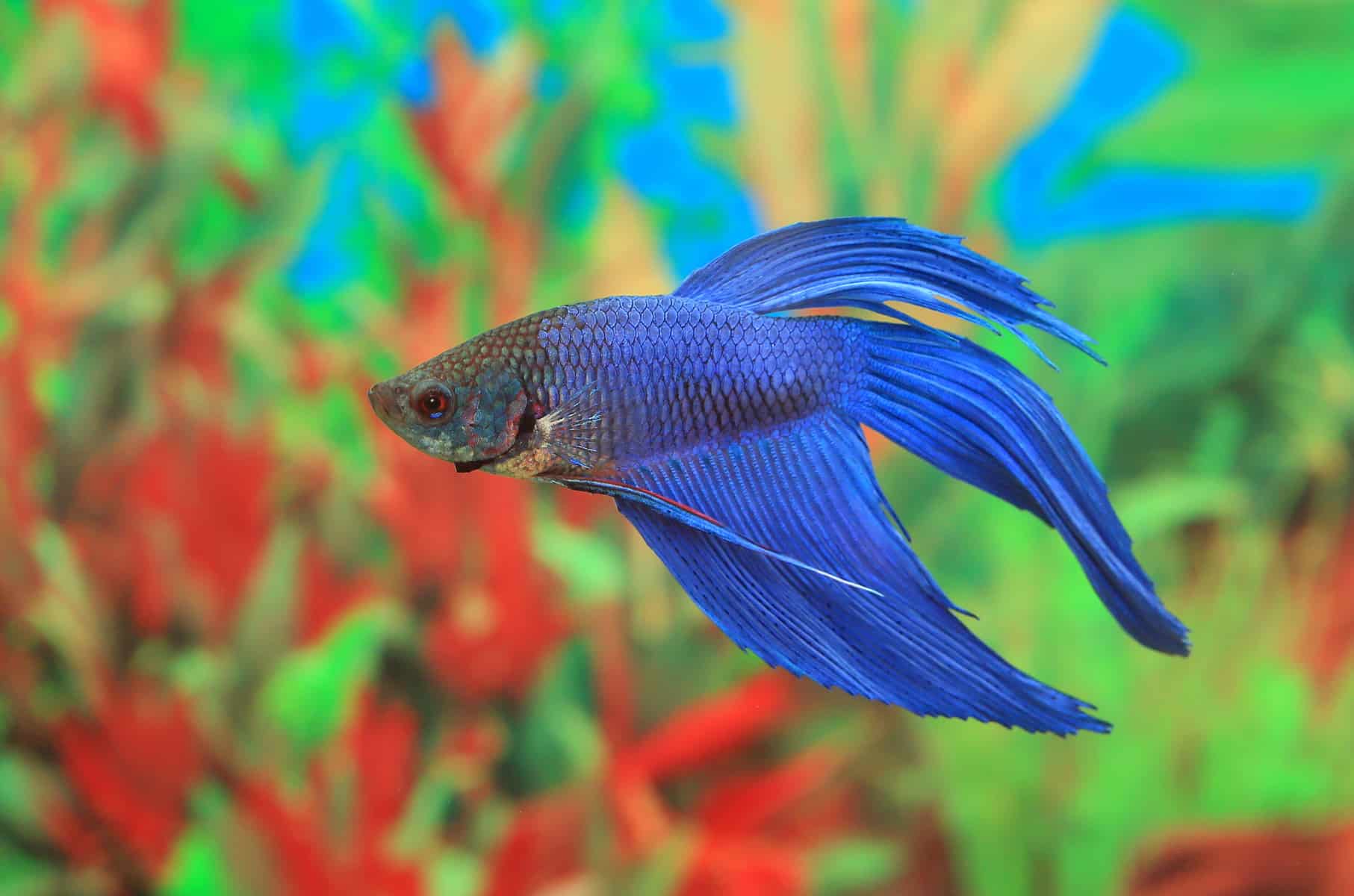Originally posted on May 12, 2023 @ 12:00 pm
Last Updated on 6 months by admin
Betta fish, also known as Siamese fighting fish, are popular pets for their vibrant colors and unique personalities. However, there are concerns about whether they are poisonous to humans or other animals. In this article, we will explore the truth behind the rumors and provide you with the facts you need to know about betta fish and their potential dangers.
Many people believe that betta fish are poisonous due to their ability to produce venom. But is this true? Let’s dive deeper into the topic and find out whether these colorful fish are harmless pets or potential hazards to our health.

Are Betta Fish Poisonous?
If you are thinking of getting a Betta fish as a pet, one of the questions that might have crossed your mind is whether these beautiful creatures are poisonous. Betta fish, also known as Siamese fighting fish, have become popular pets due to their bright colors and easy maintenance. However, it is important to know if they pose any danger to humans or other animals in your household.
Understanding Betta Fish
Betta fish are tropical freshwater fish that are native to Southeast Asia. They are known for their long, flowing fins and vibrant colors, making them a popular choice for aquariums. Betta fish are carnivorous and feed on small insects, larvae, and plankton. They have a labyrinth organ that allows them to breathe air from the surface of the water.
Physical Characteristics
Betta fish have small, upturned mouths and sharp teeth that they use to catch their prey. They also have a protective slime coat that covers their scales, which helps to prevent infections and parasites. Betta fish can grow up to three inches in length and have a lifespan of two to four years.
Behavioral Characteristics
Betta fish are known for their aggressive behavior, especially towards other Betta fish. They are territorial and will fight to defend their space, which is why they are often kept alone in aquariums. Betta fish are also known for their intelligence and can recognize their owners.
Are Betta Fish Poisonous to Humans?
Betta fish are not poisonous to humans. They do not have any venomous or toxic properties that can harm humans or other animals. However, it is important to handle Betta fish with care, as they can be easily injured or stressed.
Handling Betta Fish
When handling Betta fish, it is important to avoid touching their fins or scales, as this can cause damage to their protective slime coat. It is also important to avoid sudden movements or loud noises, as this can cause stress and harm to the fish.
Water Quality
Maintaining the water quality in your Betta fish’s aquarium is crucial for their health and well-being. Poor water quality can lead to stress, infections, and diseases. It is important to regularly test the water and perform partial water changes to keep the water clean and healthy for your Betta fish.
Betta Fish Benefits
Betta fish make great pets for many reasons. They are low maintenance and easy to care for, making them ideal for beginners. They also come in a wide range of colors and patterns, making them a beautiful addition to any home. Betta fish are also known for their calming presence and can help to reduce stress and anxiety.
Low Maintenance
Betta fish require minimal care compared to other pets. They do not need to be taken for walks, groomed, or fed multiple times a day. Betta fish only need to be fed once a day and their aquarium only needs to be cleaned once a week.
Colorful and Unique
Betta fish come in a wide range of colors and patterns, making each fish unique. They can be found in shades of red, blue, green, purple, and even black. Betta fish also have long, flowing fins that add to their beauty and elegance.
Calming Presence
Betta fish have a calming presence that can help to reduce stress and anxiety. Watching fish swim in an aquarium can be relaxing and therapeutic, making Betta fish a great addition to any home or office.
Betta Fish vs Other Fish
When it comes to choosing a fish as a pet, Betta fish have several advantages over other fish species.
Easy to Care For
Betta fish are low maintenance and easy to care for, making them a great choice for beginners. They do not require a lot of space or equipment, and their aquarium only needs to be cleaned once a week.
Can Be Kept Alone
Betta fish are territorial and can be kept alone in an aquarium. This means that you do not have to worry about introducing new fish or dealing with aggressive behavior towards other fish.
Beautiful and Unique
Betta fish come in a wide range of colors and patterns, making them a unique and beautiful addition to any home. They have long, flowing fins that add to their beauty and elegance.
In conclusion, Betta fish are not poisonous to humans or other animals. They are easy to care for, beautiful, and have a calming presence that can help to reduce stress and anxiety. If you are thinking of getting a Betta fish as a pet, be sure to provide them with a clean and healthy environment and handle them with care.
Frequently Asked Questions
Are you considering getting a Betta fish as a pet? Are you wondering whether or not they are poisonous? Here are some frequently asked questions and answers to help you understand more about Betta fish.
Are Betta Fish Poisonous?
No, Betta fish are not poisonous. They are safe to handle, and they are not known to cause any harm to humans. They are also safe to eat, but they are not commonly consumed as food.
However, Betta fish are known to be aggressive and territorial. They have sharp fins that can cause injury to other fish or even other Betta fish. It is essential to keep them in a separate tank to prevent any injuries or fights.
Can Betta Fish Hurt You?
Betta fish are not known to hurt humans. They do not have any poisonous or venomous parts that could cause harm to humans. However, if you handle them roughly, they could bite you or scratch you with their sharp fins, which could cause some discomfort.
It is also essential to be careful when cleaning their tank or handling any equipment. The water and equipment may contain harmful bacteria that could cause illness if ingested or exposed through an open wound.
Do Betta Fish Need Special Care?
Yes, Betta fish do require special care. They need a tank that is at least two and a half gallons in size, filtered, and heated to maintain a stable water temperature. They also require a specific water pH level and water quality to thrive.
Betta fish are also known to prefer a plant-based diet with occasional protein sources. It is essential to provide them with a balanced diet and avoid overfeeding them, which could lead to health problems.
How Long Do Betta Fish Live?
Betta fish have a lifespan of two to three years, depending on their care and genetics. Some Betta fish can live up to five years with proper care. It is essential to provide them with a suitable habitat, a balanced diet, and maintain their water quality to ensure they live a healthy and happy life.
It is also essential to monitor their behavior and health regularly. If you notice any changes in their behavior or any signs of illness, it is best to consult with a veterinarian who specializes in fish care.
Can Betta Fish Live with Other Fish?
Betta fish are known to be aggressive and territorial, which makes it challenging to keep them with other fish. It is best to keep them in a separate tank or with other Betta fish of the opposite gender, provided they do not show any signs of aggression.
If you decide to keep them with other fish, it is important to choose fish that are compatible with Betta fish and to provide them with plenty of hiding spots and space to swim to prevent any injuries or fights.

I Accidentally Poisoned My Betta’s Tank…
In conclusion, betta fish are not poisonous to humans. While there are some misconceptions that betta fish carry venom, these are unfounded. Betta fish are safe to handle and pose no threat to human health.
However, it is important to note that betta fish can still be harmful to themselves and other fish. They are known to be territorial and aggressive, which can lead to fights and injuries. It is important to provide betta fish with proper care and a suitable environment to prevent these issues.
Overall, betta fish can make great pets for those who are willing to invest the time and effort into their care. With proper knowledge and attention, betta fish can thrive and provide their owners with endless entertainment and joy.
